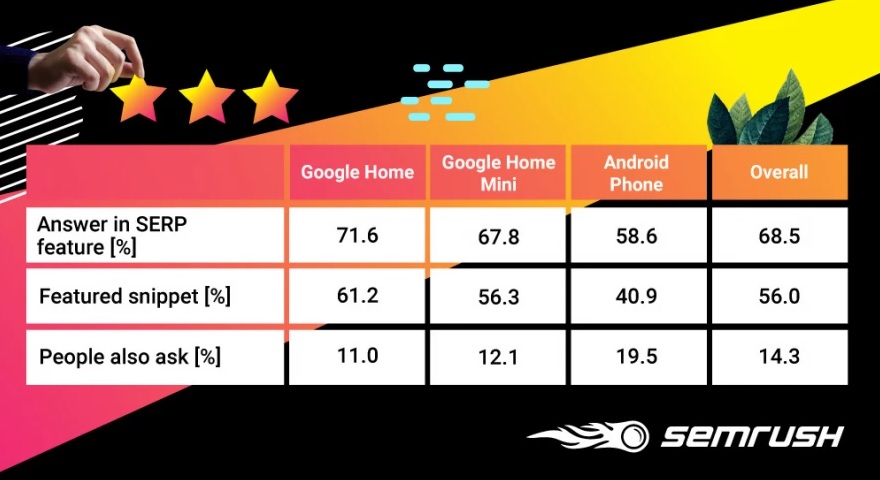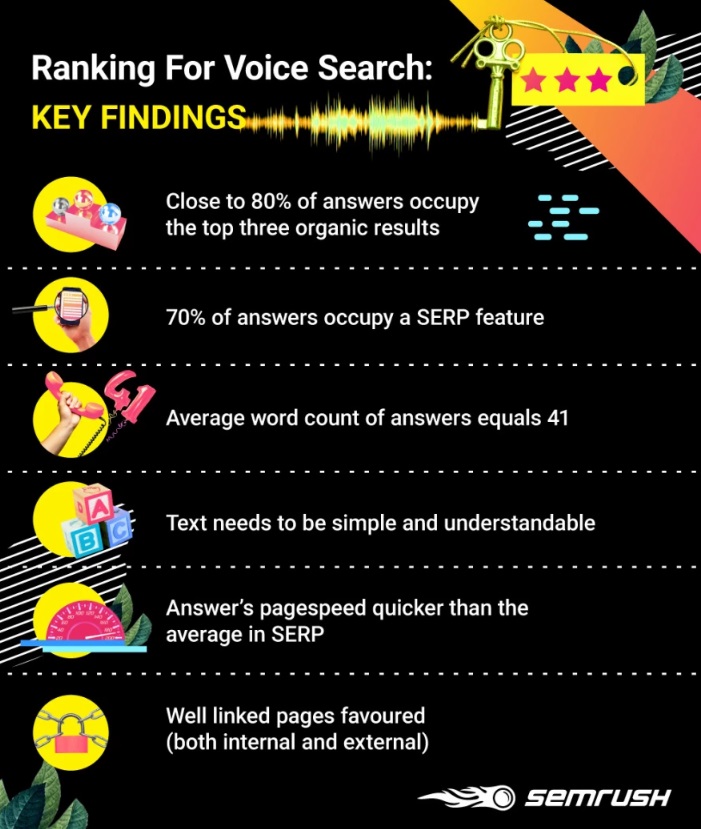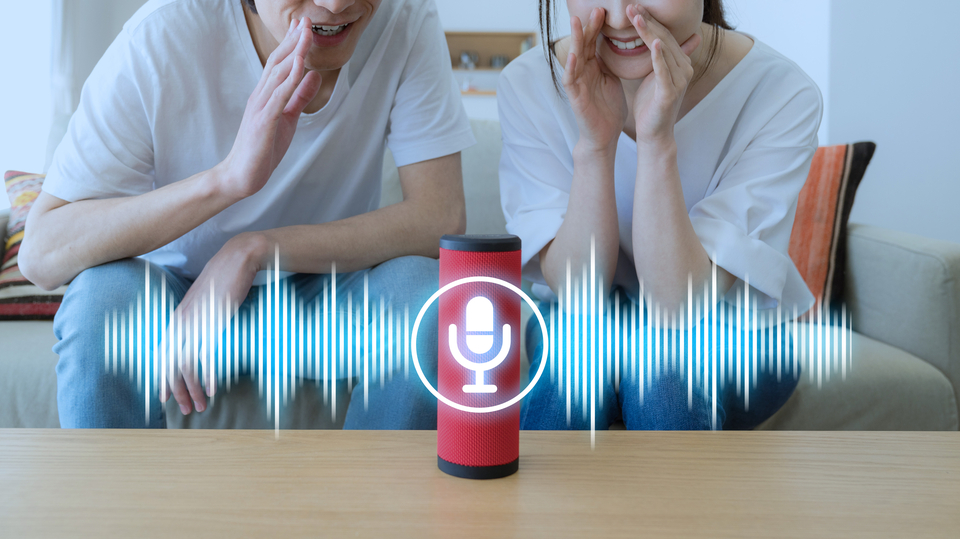A recent study conducted by SEMRush revealed that more than 80 percent of today’s voice search answers are taken from Google SERP‘s top 3 organic results.
The researchers reported that 60 percent of the answers returned by voice searches are from featured snippets, while 70 percent are from SERP features.
According to Google, 20 percent of the overall total searches made through the Android Google App today are voice searches. The tech company is expecting that voice search usage will continue to rise once the newest version of Google Assistant is released later this year.
Experts also project that by 2020, half of all online searches will be made through voice. Referring to the growing popularity of voice search, SEMRush noted:
“Combined with the fact that voice search recognition is now at a point of 95% accuracy, it only makes sense that as consumers, we are moving towards the technology more and more.”

Voice Search Answers From Organic Results
SEMRush’s study involved an in-depth analysis of more than 50,000 questions users asked from three different devices. The researchers explained:
“Using queries pulled from SEMrush’s API (as well as a series of automated voice queries), we recorded the SERPs from each query and then analyzed several different factors including the readability, page speed, number of backlinks, and SERP features (amongst others) to determine which factors are the most influential when it comes to ranking for voice search queries.”
The team applied the same process and review on Google Home, Google Home Mini, and Xiaomi Redmi 6 devices. Aside from discovering that the majority of voice search answers came from the top 3 organic results of Google SERP, the SEMRush researchers also noted the following key findings:
- When analyzing backlinks, Page Score and Trust Score were slightly higher for answers’ URLs regardless of the device.
- Backlink anchors and keywords within a title matching the voice search query are present in over half of answer URLs for Google Home and Home Mini.
- Text length of the answers returned was nearly the same for every device (around 41 words on average).
- Text complexity needs to be simple and understandable for the average reader (ranking around 8 on the Flesch Kincaid Grade.
- Pagespeed is very important for all devices — for a majority of questions, the answer chosen by Google loads faster than the average page speed for all other results in the same SERP.
- Well-linked pages (internally and externally) are favored within Google Home and Home Mini searches.
- Over a third of the answers do not use schema. Different schemas are used, with Article and Organization being the most popular, with low percentages. In non-answers, the use of schema is more prominent, but still no single type dominates.
- HTTPS and URL depth seem to be irrelevant for Google Assistant’s selection (because there was no tangible variance between answers and non-answers).

The insights provided by this new study is highly significant for SEO as voice search continues to progress. It further emphasizes the need for businesses and websites to rank high on SERP if they want to take advantage of the benefits offered by voice search technology.
“It is clear that the main factors that influence the answers Google Assistant returns from a voice search queries are pagespeed, ranking in the top three results and, in particular, occupying a Featured Snippet position.
By understanding and acting upon our 10 key findings, marketers should be able to return more answers from voice searches.”



















Comments (0)
Least Recent